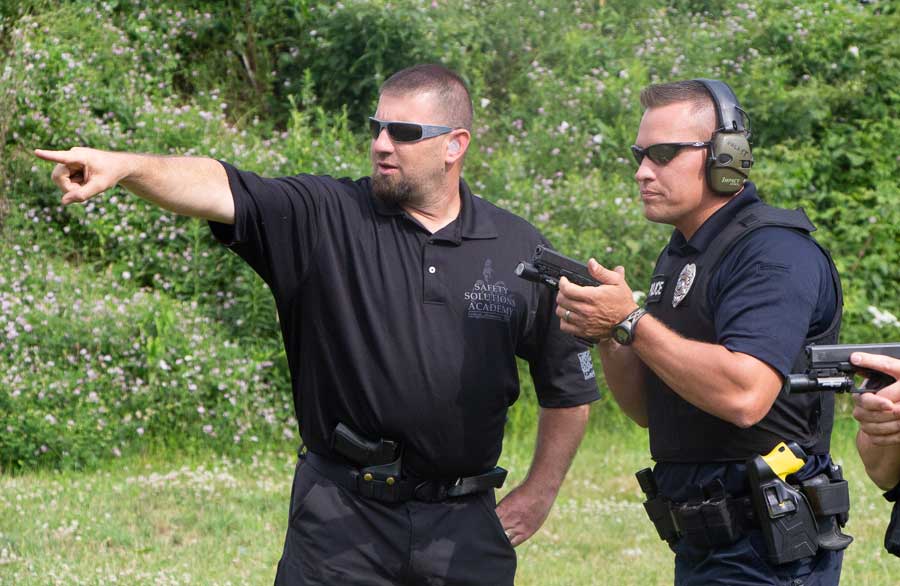
Field Training and Evaluation Programs (FTEP) are the foundations that police agencies use to build quality, career police officers. When a recruit officer is teamed up with motivated, knowledgeable field training officers, that recruit stands a very good chance of becoming a motivated, knowledgeable officer also.
The often overlooked benefit of a quality FTEP program is the high morale displayed by the FTOs will rub off on the recruit. Believe it or not, recruits who are exposed to positive, motivated FTOs, are more likely to stay with that agency for their career.
So what happens if the recruit officer is paired with FTOs that have low morale?
FTO Burnout
Recruit officers normally emulate the behaviors displayed by their mentors and FTOs. The recruit wants to fit in and be part of the team.
When everyone is enjoying their jobs and in good spirits, the training program will impart this same positive morale into the recruit. However, if everyone is complaining, the recruit is likely to pick up that attitude. A poor attitude translates to an officer who makes bad cases, gets more internal affairs complaints and is likely to leave for another agency.
I’ve seen the real benefits of a positive FTEP. Unfortunately, I have also seen the results of an FTEP with bad morale. It can be ugly.
There can be a lot of different reasons why FTOs can develop poor morale and bad attitudes. Sometimes it is a matter of a failure in the agency’s selection process to find good FTOs. Other times it might relate to some department-wide issue like a scandal or layoffs.
However, one issue I have seen time and time again –that never seems to be addressed– is plain old burnout.
When an FTO has burned out on training new officers, he or she is likely to impart an attitude of indifference or even hostility. This is unacceptable in police work.
Overworked

In my observations, one of the primary reasons for burnout is the overworking of the field training officer. It seems that there are more vacant positions than qualified recruits to fill them. As such, many departments place the burden of continuously training new officers on FTOs.
When a department is constantly hiring new officers an FTO can feel like he always has a recruit in the car. Training new officers is extremely stressful. As an FTO, you have to ensure the safety of the recruit from the public. Depending on the recruit, you may have to protect the safety of the public from the recruit.
When the recruit fails, the training officer takes the brunt of the blame and can even be held legally liable. And, should the recruit be terminated, the FTO may have to justify his training and evaluation of the recruit in a personnel board or even courtroom. It is a stressful assignment in an already stressful job.
Best FTOs = Hardest Worked
All FTOs can get burned out in these conditions. However, the best FTOs tend to be abused by many administrators.
Many times a department will assign the worst recruits to the best FTOs. The idea being is that the superior field training officer will be able to give the struggling recruit the best possible chance of success. If the recruit fails out of the program, the department can legitimately say that it tried the best it could to ensure success.
It probably doesn’t need an explanation but a struggling recruit officer requires a lot more work from the FTO. The extra work comes from developing an aggressive remedial plan, executing that plan, and then documenting all of the specific areas where the rookie is succeeding and failing. I would estimate that a remedial rookie is two to three times as much work and documentation than one who is progressing normally through the program.
You wouldn’t need too many bad rookies before a normally jovial field training officer calls it quits.
Outside Stresses
Field training officers are just like the rest of the department, and each FTO has a unique set of outside stresses that come to work with them every day. Sometimes that is a health problem, marital issue, money problem or just a lack of time to enjoy some time away from the uniform. Sometimes those stresses are even more serious; things like depression and substance abuse will negative affect the FTOs performance.
Sadly, the outside stresses can be made worse from being overworked as an FTO. It can become a cyclical nightmare.
As a fellow field training officer, it is important to watch out for your fellow trainers. If you see a potential problem, talk to them about it. Oftentimes, just talking about an issue can relieve the stress. If the problem is serious, you may need to get a program supervisor involved.
Likewise, if you are in charge of the field training program or are just a supervisor in the unit, watch out for your troops. Get to know them. This will help you spot problems that you might be able to help with before they become an issue.
I look at helping out your fellow FTOs as just the right thing to do. From an agency perspective, helping them deal with outside stresses can lead to increased morale in the field training program. Improved morale helps to mitigate being overworked (it doesn’t cure it, but it does allow you to make it though tough stretches.)
Solutions?
The solutions for being overworked is an administration issue. Some plan needs to be developed so that field training officers get downtime between recruits.
Increasing downtime could be the result of fewer rookies being hired at any given time. Alternatively, it could come from an increase in the number of field training officers in the unit. The key is to have more FTOs than you need to handle the influx of recruit officers. Either reduce the demand for FTOs by having fewer recruits or increase the supply of trainers by bringing additional qualified officers into the unit.
“Except on a short-term emergency, an FTO should probably not train more than two or three recruits a year,” wrote Jack Molden in the article Five Ways to Avoid FTO Burnout. Molden was a former police chief and the director of a law enforcement training and consulting company.
Further, Molden stated that limiting an officer’s assignment to the field training program to no more than “two or three years” was in the best interests of the department as it helped to prevent burnout and allowed the officer an opportunity to advance in other areas of the department. [Editor’s note: Molden passed away in 2017. We cannot find the article online to link to, nor do we have a license to republish it here.]
Also, there should be a regular evaluation of the program. The evaluation should include a debrief of the training officers. Let them vent their frustrations, and then try to address those issues as a unit. If the officers see that pain points are addressed in a reasonable manner, they will feel they have greater control over their jobs. Greater control leads to an increase in morale in most officers.
Final Thoughts
With burnout comes poor attitude and low morale. From there, the quality of training declines sharply, and suddenly the best FTOs are providing sub-standard training. All FTOs deserve down-time. Field training officers need time without recruits to clear their heads and refocus their own police skills.
If you are having morale problems in your FTEP, take a look at your FTOs. Are they just burned-out? Would a rest let some of them recharge?
If you are an FTO stuck with a problem recruit, check out our article on broken recruits.